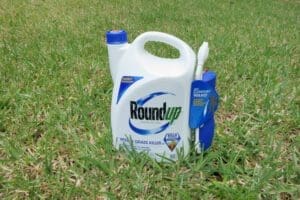Table of Contents
Marine Corps Base Camp Lejeune is in Jacksonville, North Carolina, and is the base of operations for over 20 Marine units. Established in April 1941, it was the first Marine base in the area, named after John A. Lejeune upon his death. Sadly, it was discovered that between 1953 and 1987, there was serious contamination of the drinking water at the facility, leading to Marines and their families bathing and drinking in water with contaminations at concentrations of up to 3000 times more than permitted by safety standards. This was partially due to a lack of regulation in the safe disposal of solvents used in various operations and the improper dumping or burning of these materials near the base wells for several decades. It was ordered in the 1980s that the wells be shut down, but they were placed back online in violation of regulations at the time. Many ill health effects have since been linked to water contamination at Camp Lejeune, including birth defects and health effects in pregnant and nursing mothers. The information was not made public for over two decades, until several advocacy groups formed to inform possible victims of the contamination at the base. Those exposed to harmful contaminants at Camp Lejeune are now the subject of several Camp Lejeune lawsuits, Camp Lejeune settlements and pieces of legislation to deal with the issue.
Overview of the Camp Lejeune Lawsuit
The Camp Lejeune Justice Act of 2022 is part of the renewed efforts of previous failed attempts passed by the United States House to address the issue. Following the bill’s passage in the US Senate, President Biden signed the Act into law to attempt to award compensation over the health effects of Camp Lejeune victims. The Act is not without its problems, mostly regarding funding and its operation with existing Veterans’ healthcare bills. However, the Act does provide for monetary relief for those exposed to the toxic water at Camp Lejeune and provides for healthcare and treatment of the conditions brought on by exposure.
Over 850 former residents of the base filed claims totaling nearly $4 billion towards the military seeking Camp Lejeune settlements. Initially, many of these lawsuits failed in the 11th Circuit, and the US Supreme Court refused to hear appeals. Many of the problems had to do with the two-year statute of limitation after the discovery of harmful materials versus the North Carolina statute of similar laws. Many of the claims against the military were filed well past these time periods, primarily because the information was kept from the victims. The Janey Ensminger Act of July 2012, named after the nine-year-old daughter of a Marine master sergeant who died of cancer at age 9, authorized medical care to military and family members who resided at the base between 1957 and 1987 and developed conditions related to groundwater contamination.
Those who were eligible to file lawsuits and seek settlement include anyone exposed for at least 30 days to Camp Lejeune contaminated water between the dates of August 1, 1953, and December 31, 1987. This includes Veterans, Servicemembers, and their families, as well as other personnel who worked on the base following several Camp Lejeune updates.
Camp Lejeune Lawsuit Payout Per Person: What to Expect
Not everybody receives the same compensation in a Camp Lejeune lawsuit, and Camp Lejeune settlement amounts vary from person to person. In fact, Camp Lejeune payouts might even vary between two people who were stationed at the base at the same time and in the same unit but developed different conditions.
There are several factors that might influence the amount of a Camp Lejeune lawsuit payout, but some of the more common include:
- Length of exposure: The longer that someone was exposed to the contaminated water, the more likely they are to develop a related medical condition.
- Severity of illness: Not everybody exposed to the contaminated water developed the same severity of illness. Many developed bladder cancer, kidney cancer, leukemia, and other conditions that might result in larger payouts than relatively minor conditions that are more easily treatable.
- Age: Younger victims often receive more compensation.
- Lost wages: If someone developed a health condition that rendered them unable to work, resulting in lost wages, they are eligible for greater compensation.
- Medical bills: Related to lost wages, the cost of medical treatment of the resulting Camp Lejeune-connected condition, which includes travel expenses, is often included in the settlement process.
- Pain and suffering: Everyone’s emotional and mental reaction to becoming a victim of this kind differs, and those who experienced greater emotional and physical pain, resulting in suffering and an inability to heal, might require greater compensation for treatment to deal with these issues.
- Funeral Expenses: If a victim passed away from their conditions caused by Camp Lejeune contaminated water, then the Camp Lejeune lawsuit payout to their families will include these expenses.
On average, Camp Lejeune settlement amounts might range from $10,000 to over $1 million.
Recent Camp Lejeune Updates
The Camp Lejeune lawsuit situation is constantly changing, leading to different court decisions in different parts of the country. There are several websites available that aim to provide potential victims with information and updates on Camp Lejeune water contamination lawsuits, as well as general updates on Camp Lejeune events.
In 2024, it is important to consider the following factors:
- Settlement deadline: The deadline to file a Camp Lejeune claim was August 10, 2024, and at present, the Department of Navy is not accepting new claims.
- Settlement payouts: As of July 2024, payouts have reached a total of $14 million. October 2023 saw the decision on the Camp Lejeune settlement guidelines.
- Track 1 Cases: The Track 1 court proceedings, which involved 25 plaintiffs with bladder cancer, kidney cancer, non-Hodgkin’s lymphoma, and leukemia, concluded their discovery on August 11, 2024.
- EPA regulations: The EPA issued new regulations on the use of trichloroethylene, which was the primary agent in contaminating the Camp Lejeune water.
- Legal Extensions: Many defendants requested an extension of time to respond to new written discoveries, which several courts have thus far granted.
- Case Management Order Number 14: This order will receive several updates from the court to make the settlement process more efficient.
Frequently Asked Questions about the Lawsuit
If you already have a Camp Lejeune lawsuit in motion and are wondering about your Camp Lejeune settlement, always consult with your attorney, preferably one who specializes in this form of litigation, if you have any extensive legal questions that pertain to your specific situation. In the meantime, take into consideration the following frequently asked questions:
Those who meet eligibility requirements for a Camp Lejeune lawsuit include anyone who was exposed to the contaminated water at the base between August 1, 1953, and December 31, 1987, for at least 30 days. They must present proof of harm, most likely due to water exposure, and a health condition resulting from this exposure. Veterans and Servicemembers, as well as their spouses and children, all qualify for compensation under a Camp Lejeune settlement.
Those who meet eligibility requirements for a Camp Lejeune lawsuit include anyone who was exposed to the contaminated water at the base between August 1, 1953, and December 31, 1987, for at least 30 days. They must present proof of harm, most likely due to water exposure, and a health condition resulting from this exposure. Veterans and Servicemembers, as well as their spouses and children, all qualify for compensation under a Camp Lejeune settlement.
The deadline for filing a Camp Lejeune Justice Act claim was August 10, 2024.
Many factors are involved in the process, but on average it takes anywhere from one to two years to receive a Camp Lejeune settlement from your lawsuit, although those with more complicated cases may have to wait longer.
No, they are not, as the amount a claimant receives is determined by several factors, such as the extent of injury, pain and suffering, and any available evidence that bolsters their case. Some have lost their lawsuit claims.
Several health conditions have since been identified as being caused by Camp Lejeune contaminated groundwater, including:
- Adult leukemia
- Bladder cancer
- Kidney cancer
- Liver cancer
- Multiple myeloma
- Non-Hodgkin’s lymphoma
- Parkinson’s disease
- Miscarriage and infertility
- Fatty liver syndrome
- Neurobehavioral issues
- Congenital disabilities in children




